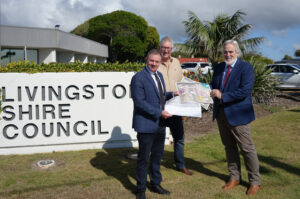
The recent ESOMAR Congress 2025 posed a challenging question to attendees: if you had to rebuild the research industry from scratch, how much would you retain and how much would you change? This provocative inquiry reflects the current state of the insights industry, which is navigating significant pressures and transformations.
Addressing Industry Challenges
During the congress, Lyndall Spooner, Founder and CEO of 5D, highlighted three pivotal tensions within the research sector. These include the passion of researchers dedicated to their craft, the demands from companies for faster and more cost-effective insights, and the ongoing cultural, geopolitical, and technological shifts affecting the landscape.
“Now is the time to reimagine how the industry works and what it delivers,” Spooner stated. This reimagining requires a willingness to move beyond traditional practices, challenge existing assumptions, and embrace new methodologies that enhance understanding rather than diminish it.
Notably, Spooner cautioned against changes that compromise trust, accuracy, or clarity. “Should we accept new research practices that achieve only 70% of current accuracy simply because they are faster or cheaper?” she questioned. The goal should be to deepen understanding and provide clarity, especially in an increasingly complex world.
Exploring the Depths of Human Behaviour
This year’s congress showcased a variety of inspiring presentations that delved into the “why” behind human behaviour. By embracing complexity rather than simplifying it, researchers guided respondents through journeys of self-discovery, uncovering deeper motivations and emotions that shape modern experiences.
The “why” remains central to market research. Of the five Ws—who, what, when, where, and why—this critical question continues to challenge researchers. To truly understand consumer choices and beliefs, researchers must engage respondents in reflective exploration.
“The modern ‘why’ is layered and intricate,” Spooner remarked. This complexity presents an exciting opportunity for researchers, who are not only strategic thinkers but also empathetic listeners and creative explorers. The absence of a single average or simple model makes the research process both challenging and rewarding.
Technological advancements, particularly in AI, provide new tools that can enhance research capabilities. However, Spooner emphasized that technology alone does not yield understanding. Much of the enthusiasm surrounding AI is driven by a fear of being left behind. The real challenge lies in using imagination and empathy to ask profound questions that technology cannot address.
“To remain better than technology at generating insight, we must go deeper into the ‘why’—into lived experience, human intuition, emotion, and culture,” Spooner advised. This approach encourages innovation with integrity, purposeful experimentation, and a comfort with uncertainty, which are essential for growth in the industry.
Reimagining the research sector is not about abandoning established practices; rather, it is about elevating them. As the world becomes more complex, the role of research is increasingly vital in illuminating human experiences, fostering understanding, and driving action.
In summary, as the insights industry stands at a crossroads, the discourse at ESOMAR Congress 2025 underscores the urgent need for thoughtful evolution. By embracing change that enhances accuracy and understanding, researchers can navigate the complexities of modern human behaviour while maintaining the integrity of their craft.







